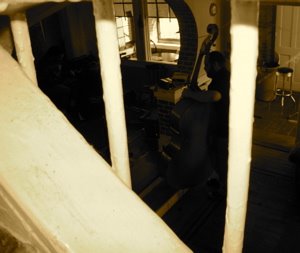(after Milton Babbit: Words about Music, p. 72)
The notion of a young composer
trying at any moment of his piece
to use any significant segment
both to recall and to predict,
to be retrospective and predictive,
to tell you where you’ve been
as well as where you’re going to be,
is, of course, to many composers,
crucial. And either you run the risk
of being too retrospective (which
means too obvious), or you run
the other risk of being too predictive
(and therefore being opaque or perhaps
losing a reasonable listener), I have to say
reasonable listener although you know
what kind of cop-out that has to be.
Stravinsky used the term the hypothetical other;
of course, the hypothetical other is Stravinsky.
Subscribe to:
Post Comments (Atom)

No comments:
Post a Comment